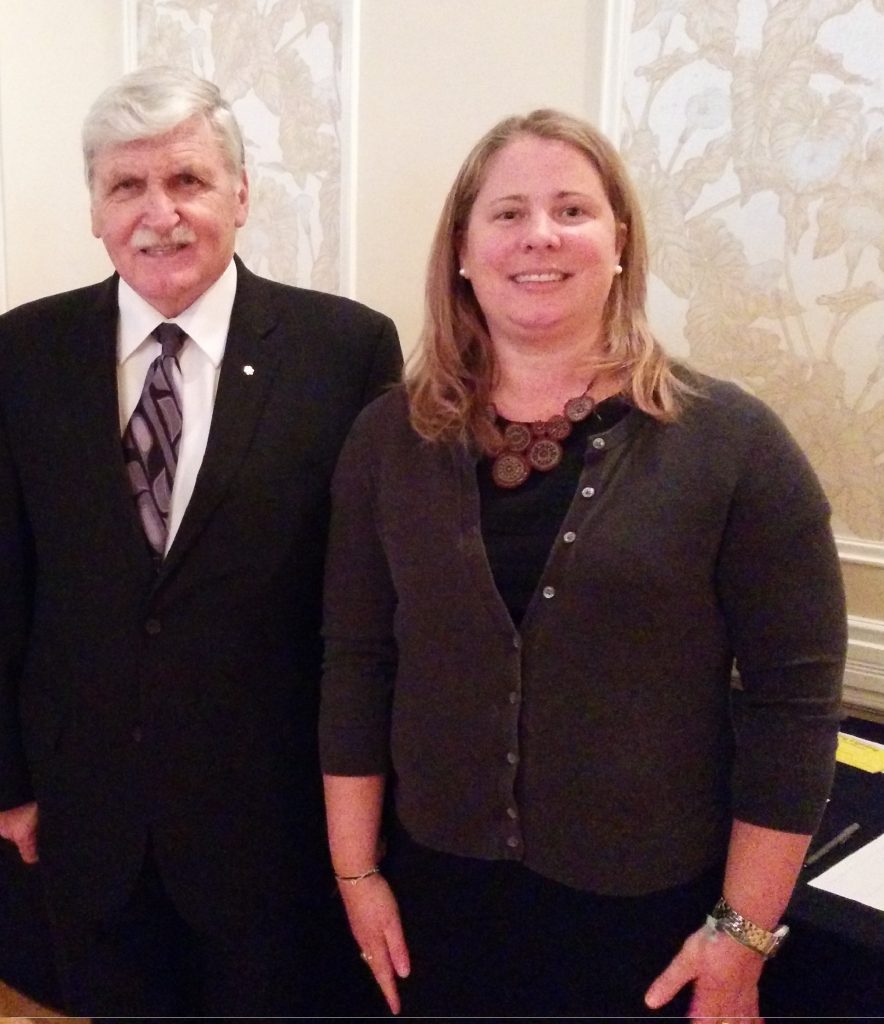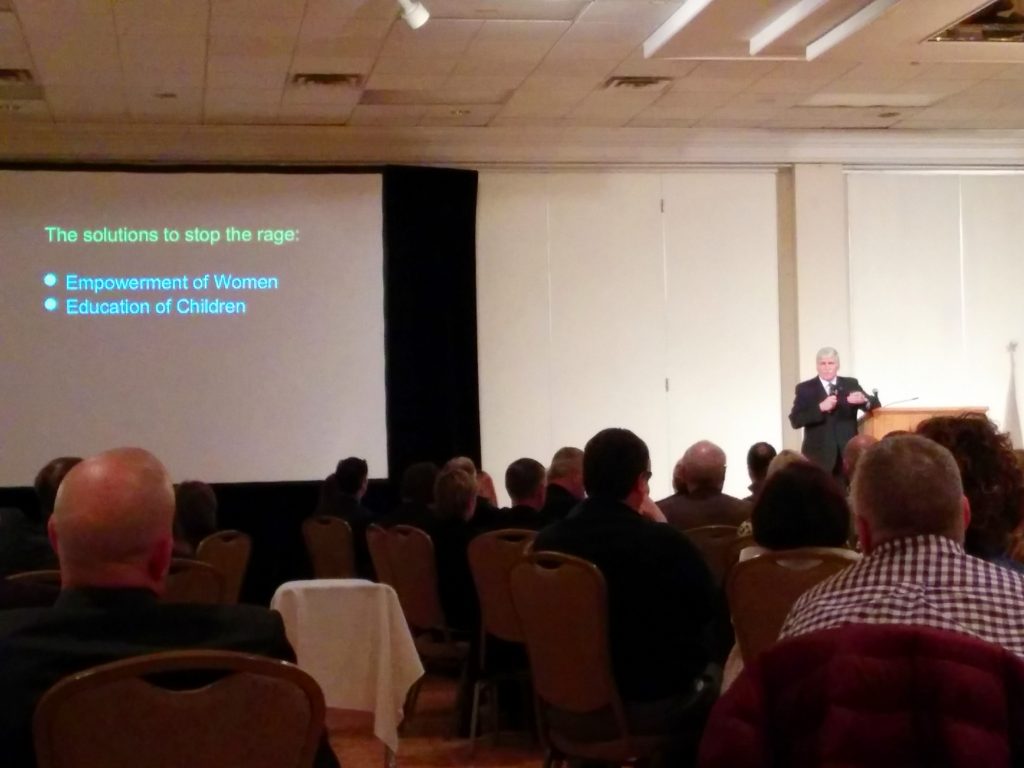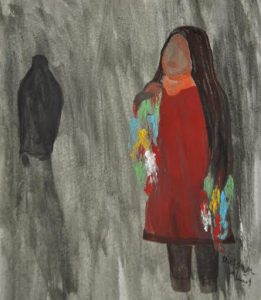
by World Moms Blog | May 7, 2015 | 2015, Awareness, Being Thankful, Birthing, Casting a Wider Net, Clean Birth Kits, Education, Global Citizenship, Health, Helping, Human Rights, International, Life, Life Lesson, Loss of Child, Maternal Health, Motherhood, Newborn Health, ONE, Pregnancy, Priorities, Responsibility, Tragedy, Transportation, Womanhood, Women's Rights, Working Mother, World Mom Feature, World Motherhood
 Every mother has the right to access the care they need during pregnancy and childbirth – care that can identify, prevent, and manage complications should they arise. But failure to meet these needs results in the loss of 800 mothers every day, even though up to 98% of these deaths are preventable.
Every mother has the right to access the care they need during pregnancy and childbirth – care that can identify, prevent, and manage complications should they arise. But failure to meet these needs results in the loss of 800 mothers every day, even though up to 98% of these deaths are preventable.
Every Mother Counts is working to provide solutions that can make pregnancy and childbirth safer. We know that with the right care at the right time, it IS possible that every mother could have the chance to survive and thrive.
Recently, World Moms Blog sat down with Executive Director of Every Mother Counts, Erin Thornton, to talk about how she got involved with the organization and what drives her to work so hard for maternal health.
World Moms Blog: Erin, you’re the mother of three young girls and you live in the metro-Boston area yet you are the executive director of Every Mother Counts, a New York-based non-profit working in five locations around the world. How did you get involved?
Erin Thornton: My involvement with Every Mother Counts grew out of a 10-day trip to Africa with my former organization, ONE. We had invited Christy Turlington Burns along and she and I got chatting about maternal health. Maternal health was not an issue ONE focused on and I was really drawn to what Christy was telling me about.
WMB: What about maternal health drew you in?
ET: Well, Christy had just completed the film, “No Woman, No Cry” a documentary about maternal health challenges that impact the lives of millions of girls and women around the world. During our trip through five African countries, Christy and I spent a lot of time comparing notes on what was needed to move the maternal health agenda forward. Through all my time at ONE, I realized how interlinked so many poverty challenges are to maternal health—that if moms are kept alive, we can better keep kids alive, better give them an education and clean water, etc. Yet still no one was really talking about it.
WMB: What prompted you to leave behind a long career with ONE and join Christy in her pursuit of spreading maternal health awareness as she built this new non-profit?
ET: I had been with ONE since 2002, when I became the first hire in the US for ONE’s predecessor organization, DATA. By 2010, ONE had grown to 120 people in four different global offices. I had two young girls and I was starting to think about making a change. The more Christy and I talked about the need for an “awareness campaign” for maternal health, the more I realized I wanted to be a part of it too, so six-months later, I formally signed on to help her build the organization.
WMB: In just a few days (May 10), we celebrate Mother’s Day here in the US, can you share with World Moms something about what makes you a passionate believer in Every Mother Counts?
ET: Physiologically, every woman goes through pregnancy the same way and faces the same chances of developing a complication. The difference in how they fare mainly comes down to whether they have access to good health care- or not. Helping more moms enjoy a safe pregnancy and delivery may sound like an overwhelming challenge but we really CAN make a difference. EMC has identified three target areas to focus our support on: 1. transport, 2. education and training for healthcare providers, and 3. supplies for clinics–including birth kits, solar suitcases and lighting. And we’re seeing that these seemingly simple things are making a big difference.
This Mother’s Day, Every Mother Counts is celebrating #WhatIsPossible for every mother.
Every mother has the right to access the care they need during pregnancy and childbirth – care that can identify, prevent, and manage complications should they arise. But failure to meet these needs results in the loss of 800 mothers every day, even though up to 98% of these deaths are preventable.
Every Mother Counts is working to provide solutions that can make pregnancy and childbirth safer. We know that with the right care at the right time, it IS possible that every mother could have the chance to survive and thrive.
So this Mother’s Day, as we look at the future of maternal health, we ask ourselves #WhatIsPossible? And the answer is, a lot.
With your help, Every Mother Counts has already impacted thousands of lives by improving access to critical maternal health care for vulnerable mothers.
During the month of May, we invite you to spread the good news about by sharing this .
This is an original interview with Erin Thornton posted by World Moms Blog Managing Editor, Kyla P’an.
The image used in this post is from the Every Mother Counts website and is used here with permission.
World Moms Blog is an award winning website which writes from over 30 countries on the topics of motherhood, culture, human rights and social good. Over 70 international contributors share their stories from around the globe, bonded by the common thread of motherhood and wanting a better world for their children.
World Moms Blog was listed by Forbes Woman as one of the "Best 100 Websites for Women 2012 & 2013" and also called a "must read" by the NY Times Motherlode in 2013. Our Senior Editor in India, Purnima Ramakrishnan, was awarded the BlogHer International Activist Award in 2013.
More Posts

by Alison Fraser | Apr 6, 2015 | Africa, Canada, Global Citizenship, Gratefulness, Humanitarian, Humanity, Inspirational, International, ONE, Philanthropy, Poverty, Social Good, Tanzania, Uncategorized, Women's Rights

The author Alison Fraser pictured here with General Romeo Dallaire
I have written before on the trials and tribulations that go hand in hand with running a not for profit organization or charity. As we all know, negative words can have a huge impact on how we view ourselves and our work.
What I now realize, is that I have completely underestimated the power of kind words.
Let me explain…
Last month, I had the incredible opportunity to meet General Romeo Dallaire at a local charity event. General Dallaire is a highly respected Canadian general. He braved the Rwandan genocide of 1994, essentially remaining to help when most everyone else left Rwanda, and the world turned a blind eye to the extreme brutality taking place in the African country. As the guest of honour at the event, he spoke of the global injustices plaguing our world and causing, what he refers to, as global rage. We see this rage daily as the stories make headlines. According to General Dallaire, two of the main sources of this rage are our failures with respect to the: (1) empowerment of women and (2) education of children. I felt so uplifted to hear that the work we at Mom2Mom Africa are doing addresses two of the most important social injustices identified by someone as worldly and experienced as General Dallaire.

I raced to introduce myself to him after he spoke, and we chatted briefly about my work in Tanzania. I was so nervous but he put me right at ease. He was so humble and kind. And, at the end, he turned to me and said;
“young lady, keep doing what you are doing. It is the work of small, grassroots organizations like yours that will change the world”.
I could have cried right there on the spot; not out of sadness but instead out of pure joy. This man, who had inspired me in so many ways, just washed away all of my insecurities and doubts, with only a few words.
As the Buddha once said..
“Words have the power to both destroy and heal. When words are both true and kind, they can change our world”.
How great it is when someone, who is such an inspiration and role model, takes the time to encourage others, no matter how small their impact is on the world. Imagine what would happen if this was common practice? What if we built each other up instead of tearing each other down? What if we collaborated and focussed on common goals? Imagine what would be accomplished if we all spent more time being kind and supportive, especially those in positions of power. I am not sure if General Dallaire will ever know just how much his kind words meant to me. He gave me the strength to keep moving forward, to keep tackling and overcoming the obstacles that so many of us face. I will be forever grateful to this man, and I can only hope that others, who are in positions of influence, will follow General Dallaire’s lead. I am so proud of my fellow Canadian!
This is an original post written for World Moms Blog by Alison Fraser of Mom2Mom Africa
Do you remember kind words from another that may have inspired you in your life?
Alison Fraser is the mother of three young girls ranging in age from 5 to 9 years old. She lives with her family in Cambridge, Ontario, Canada. Alison works as an Environmental Toxicologist with a human environment consulting company and is an active member of the Society of Environmental Toxicology and Chemistry (SETAC). She is also the founder and director of the Canadian Not for Profit Organization, Mom2Mom Africa, which serves to fund the school fees of children and young women in rural Tanzania. Recently recognized and awarded a "Women of Waterloo Region" award, Alison is very involved in charitable events within her community including Christmas Toy and School Backpack Drives for the local foodbank.
More Posts - Website
Follow Me:



by World Moms Blog | Apr 1, 2015 | Feminism, Girls, Gratefulness, Guest Post, Human Rights, Husband, Priorities, School, Social Equality, Uncategorized, Women's Rights, Working Mother
 Kids complain about going to school today? Have them read this guest post, which comes to us from Ibtisam in Oman. You can find more of her wonderful perspective on her blog: ibtisammusings.com.
Kids complain about going to school today? Have them read this guest post, which comes to us from Ibtisam in Oman. You can find more of her wonderful perspective on her blog: ibtisammusings.com.
Sometime in the late 1960s, there was a six-year-old girl whose father did not believe education was of any benefit to her. However, because her eldest brother took a stand that education was her right, she went to school and was quite intelligent in her studies. She did not make it to high school, but those first few years meant the world to her.
Fast-forward to 1998. There was 18 year-old girl who just graduated from high school with grades that enabled her to receive a government scholarship to further her studies. She had a dream of studying somewhere abroad. Her father supported her endlessly without having a second thought about it.
Two women, my mother and me, received a life-changing education made possible by the men in our family. In our part of the world, and specially for some women, it was like asking for the moon. The sad thing is, that is still the case for many other women.
In 2010, my husband registered me for a Master’s degree course in business administration. I had two children at that time who were 2 and 4 years old. I had a house to take care of, but he believed I could do it, and I did do it with his full and endless support. He ’empowered’ me to do the course before himself, although it is what he wanted to do for many years.
I worked for ten years at a hospital, then I quit to start my own business. I still can remember one woman I know crying as she wanted so badly to start her business and follow her dream, but her husband gave her a hard time and made it impossible for her.
Initially, the thought of quitting my job scared me to death. Then, the moment that moral support from my husband was there, everything seemed easy. This year, my sister-in-law had an opportunity to work abroad. She found the courage to go for it when her husband, my brother, told her not to worry and that he would support her decision, no matter what it was.
Maybe many will think, ‘how does a man’s decision affect a woman’s choices?’ Well, in my society it does. You can find few girls who managed to follow their dreams despite the resistance they faced. However, this can be so tough and risky in a collectivist society where family ties are sacred.
Maybe we are living the good time for women empowerment in my country and many other countries around us. I hear and read the word ‘woman empowerment’ everywhere in our media. There are conferences, workshops, lectures etc. on this specific issue. This is the reason why I decided to write this. I have this deep feeling of gratitude towards the men in my life, and for men like them who recognize the rights of women. Without their support, love and encouragement, ‘woman empowerment conferences’ would be a story with a sad ending for us.
picture credit: the author
World Moms Blog is an award winning website which writes from over 30 countries on the topics of motherhood, culture, human rights and social good. Over 70 international contributors share their stories from around the globe, bonded by the common thread of motherhood and wanting a better world for their children.
World Moms Blog was listed by Forbes Woman as one of the "Best 100 Websites for Women 2012 & 2013" and also called a "must read" by the NY Times Motherlode in 2013. Our Senior Editor in India, Purnima Ramakrishnan, was awarded the BlogHer International Activist Award in 2013.
More Posts

by shootiegirl | Mar 10, 2015 | 2015, Social Good, Womanhood, Women's Rights, World Moms Blog, World Voice

Photos by Elizabeth Atalay
This past Sunday the world celebrated International Women’s Day.
What does it mean to be a woman? For me, it means the sky is the limit. I can be a wife, a mother, a corporate woman, an entrepreneur, a philanthropist and an artist. Yes! All at the same time! Because I was raised by a woman of such strength and power, I’ve never set any limits for myself. Frankly, I didn’t even know they existed. I have always felt propelled, even at a very young age, to DREAM BIG and move beyond the status quo.
As a mother of two girls, I live my life in a way that proves to my daughters that a glass ceiling is non-existent. Who says they can’t become engineers and architects because they are female? What about an astronaut, fire fighter, dancer, fashion designer?
I often remind them that wherever their minds can take them, they can reach any of those goals and beyond. Why? Because there are no boundaries, unless they create them.
Women around the world measure happiness and success differently. Whether it’s bringing your children to school safely in a dangerous area, raising your child to dream of and follow the profession of their choice, standing up so your daughter is not married off in childhood, giving your children the support they need to do well in school, or providing food for your family by working hard at a job just to make ends meet, these are all great efforts we are making to pave the way for a better world. We all share the desire for happiness and success for our children worldwide.
I encourage you to celebrate the women around and beyond you! In order to stay empowered, we must reach out to lift another woman up. Help her to find her happiness and success!What is your idea of happiness and success?
This is an original post written by Shootiegirl creator LaShaun Martin for World Moms Blog.
What is your idea of happiness and success?

LaShaun Martin is National Director of Social Media and Community Service for Mocha Moms, Inc. a national 501(c)(3) support group for stay-at-home mothers of color. LaShaun currently works to manage and promote community service programs for the organization to include teen mentoring, Boys Booked on Barbershops literacy program, America’s Promise, MomsRising, Moms Clean Air Force, U.S. Environmental Protection Agency, and U.S. Department of Education. She is a frequent guest of the White House for events focused on women and girls including tea with First Lady Michelle Obama.
LaShaun holds a Bachelor of Science degree in Business Administration. LaShaun spent 20 years with the State of California, the State of Maryland Department of Corrections managing public education, research, FBI programs and later Hewlett Packard. LaShaun now serves as CEO and Designer of her own company, Shootie Girl™ Custom Rhinestone Apparel and Shootie Girl™ Blog – Positive Messages for Women and Girls. Shootie Girl™ designs have been featured with CNN’s Soledad O’Brien, Sherri Shepherd of The View, Carol’s Daughter, Clinique Cosmetics, Jack and Jill of America, Inc., Still Standing Movie, Dr. Sherry Blake of Essence Magazine and Aja Dantzler of R&B singing couple Kindred and the Family Soul and Blogalicious.
LaShaun is passionate about giving back and ensures her company reflects a heart for service by donating many “t-shirts for a cause” to Heart of Haiti, the women of Zimbabwe and The United Nations Foundation Shot@Life Campaign. She also serves on the Advisory Board of MOMentumNation and the Epilepsy Foundation.
LaShaun’s greatest passions are her husband, two lovely daughters and music.
Blog: http://www.shootiegirl.net
Custom Rhinestone Apparel: http://www.shootiegirl.com
More Posts

by Aisha Yesufu | Feb 18, 2015 | Girls, Human Rights, Identity, Nigeria, Religion, Women's Rights, World Motherhood
 This year, World Hijab Day (February 1) coincided with an invitation to a black tie event in my town honoring young leaders in politics. It was also the 278th day of my town’s daily Sit Out/protest for the rescue of the #ChibokGirls, who, at that time, had been abducted for 293 days. I was excited about the young leaders event. It would be something nice to take away the gloom of carrying the guilt of failing 219#ChibokGirls.
This year, World Hijab Day (February 1) coincided with an invitation to a black tie event in my town honoring young leaders in politics. It was also the 278th day of my town’s daily Sit Out/protest for the rescue of the #ChibokGirls, who, at that time, had been abducted for 293 days. I was excited about the young leaders event. It would be something nice to take away the gloom of carrying the guilt of failing 219#ChibokGirls.
I came to the event directly from the Sit Out, so I brought clothes to change into. I couldn’t imagine having to go back home because my house was a bit far, and I hate not being punctual. As I was about to enter the venue, a gentleman approached me. Because I was wearing the Hijab, I had to go through a metal detector and body search. The colleague I was with was angry. “Why?” he demanded. “It’s because of what she is wearing,” the man said, “we can’t let her pass.” After passing through extra security, I was admitted.
As a Muslim woman who wears the Hijab, I am used to being treated differently and looked upon differently because of what I wear. I face this discrimination both within and outside my country, and even amongst some Muslims, although the Hijab is compulsory for Muslim women. Everything has to be covered by a loose garment except our hands and face. It is not something that I might want or not want to do; it is something that I have to do.
Some look at the Hijab as a form of enslavement. It is not. Rather, it’s liberating. It tells those I meet to deal with my intellect, and not to focus on my body. More than 1400 years ago, Islam gave women this freedom. As a Muslim woman, I have a right to education. It is so infuriating when some Muslims deny their daughters this right because of their cultural beliefs or ignorance, and the world looks upon their practice as Islamic.
It is so infuriating when my Hijab is used as a symbol for their ignorance–and worse.
Sometimes, I do not blame those who treat me differently. A lot of people have acted savagely and said they did so in the name of Islam. I recently had an experience that touched my very soul. It was time for prayers, and I was close to a mosque. Opposite the mosque, some months ago, there had been a bomb blast that killed scores of people, including worshippers. I walked over to the mosque to pray. The man at the gate glanced my way, saw me, and he flinched. There was stark fear in his eyes. I gently asked him, “Would you want me searched?” He shook his head–probably with a pounding heart. As I walked away, I realized this is what a band of evil people that have hijacked Islam have done: made a fellow Muslim fear seeing me walk to the mosque during prayer time.
All the tragedies committed in the name of Islam upset me, but I will not let the acts of cowards and criminals change how I practice my faith. Before I am Aisha, I am a Muslim woman. I will not allow any human being to make me uncomfortable in a world God created for us all.
Do any of your friends wear the Hijab? Have any of you been judged for the actions of others based on your faith?

by Melanie Oda (Japan) | Jan 8, 2015 | 2014, Awareness, Child Care, Childhood, Culture, Domesticity, Education, Expat Life, Eye on Culture, Family, Feminism, Grandparent, Home, Husband, International, Japan, Life, Life Lesson, Living Abroad, Marriage, Me-Time, Motherhood, Multicultural, Parent Care, Parenting, Priorities, Relationships, Responsibility, School, Social Equality, Womanhood, Women's Rights, World Motherhood, Younger Children
 Gender equality has been in the news quite a bit in Japan recently, sort of, and some things have happened closer to home that have me thinking.
Gender equality has been in the news quite a bit in Japan recently, sort of, and some things have happened closer to home that have me thinking.
It started when a (female) Tokyo assembly member was heckled in a sexist way. Then Prime Minister Abe introduced some new policies to let women “shine.” (He needs to get them doing something for the economy.) He even appointed several women to cabinet posts, for about five minutes, until they were slapped back down into their places over minor scandals.
In Japan, people are talking more about issues women face but no one seems to be doing much about them.
(Lest I forget: strangely enough, the declining birth rate is treated as a “women’s issue.” I seem to remember my husband being involved, too.)
I never considered myself a feminist growing up. Some members of the evangelical, conservative community I grew up in doubtless felt “feminist” was a new version of the “F-word.”
OK, so I went to a high school with more sports options for boys than girls. And yes, girls were encouraged to take chorus and home economics instead of woodworking or mechanics. So maybe I heard men from my community refer to grown women as “broads” or “gals.” There also were some restrictions at church regarding women’s and men’s roles. But I never felt that possessing certain types of baby-making parts limited my potential.
Then I moved to Japan, where gender roles are more firmly entrenched and my way of thinking slowly changed.
As I get older, and because I am a mother, I find that I am limited in ways that I couldn’t have foreseen as a young girl.
Some people may find life here in Japan freeing. If you aspire to be a homemaker a la Martha Stewart, then your life’s work would be very much respected and appreciated here. My husband wouldn’t bat an eyelid if he came home to a messy house because I’d spent the day at a preschool mothers’ lunch. He knows that is part of the job (on the other hand, it would never occur to him to pick up the mess himself.)
If, as a woman, you have other aspirations, Japanese culture seems designed to work against you. The glass ceiling is very much in tact. On the news here you do hear issues like lack of childcare and “maternity harassment” being addressed. But what gets talked about less often is that to many women, including myself, it feels as if there’s a glass door as well.
It’s my front door.
Before a woman can even think about what is facing her out in the world, she needs to address the forces that are keeping her at home. Some of these are practical, some are logistical, some are cultural and perhaps peculiar to Japan and it’s work culture.
For me, it starts with my husband: He leaves home at 7am every morning, but I have no idea what time he will be back. Sometimes it’s 7pm. Sometimes it’s midnight. He may be in the office that day, or he may suddenly be sent to another prefecture. He’s made international trips on 12 hours notice. I cannot depend on him being home at a designated time, by no fault of his own. The idea of him taking time off with a sick child is preposterous in the extreme.
I have been lucky enough to have two job offers recently, both of which would be more or less during school hours, but neither is nearby. If a child were to get sick and need picking up, or if god-forbid there was a natural disaster (which is always in the back of your mind if you are a mother in Japan,) then my husband would be closer. I mentioned that, and he completely shot me down. Not just the idea of him picking up the kids in case of an emergency, but the idea of a job anywhere outside of cycling distance from the school.
We live in a residential neighborhood. I patch together some part-time work here and there, but it’s not like there are loads of professional opportunities in a two kilometer radius.
I suddenly felt very limited, penned in, in a way I haven’t felt before. The glass door was slamming in my face.
I don’t think I’m alone in this conundrum. Go to almost any supermarket in a residential area during the day, and you will see women in their prime working years manning the register. Many of these women have university degrees. Many have licenses and qualifications to be doing other kinds of work, but they want to stay close to home. They also need salaries to stay under $10,000 year or face a peculiar Japanese tax code and insurance system that penalizes families where both partners have incomes over that amount.
Then there are my kids: Like 2/3 of Japanese women with children under 6, I stayed home when they were small. They now completely depend on me for everything. It seems to have never entered their minds that someone else could give them a bath or help them find their missing socks, mostly because no one else has ever done anything for them. Especially when they are sick, they want only me. It was very hard when my daughter was in the hospital, both children wanting to be with me and emphatic that no one else would do.
But now my youngest is in elementary school, and I would like to just be doing more of something….else, but for me to plunge into the workforce would be a huge adjustment for my children. Is it worth the stress? Can we survive what is sure to be a painful adjustment period?
Maybe if I had more family support, it would feel less impossible but as it is, it seems like everyone is against me.
Which brings me to the final characters in this comedy, my in-laws: They say they’ll watch the kids, then they change their minds. Or something better comes up. From their point of view, this house and these people are completely my responsibility. Anything they do is extra credit.
To be honest, we’re getting to the point where my in-laws need my help more than I need theirs.
They aren’t shy about letting me know my place.
One day not too long ago, my son was playing at the park with his friends. It was getting close to homework time, so I called him and told him to come home. He said he was playing with Jiji (which is an endearing term for grandfather used in our region of Japan,) and could he play for a bit longer? Since he was out with an adult, I said okay.
The next day, I got a verbal whipping from my father-in-law over the phone, accusing me of being irresponsible, a bad mother. It took me a few minutes to understand why he was saying this, but when I got to the bottom of it, I realized my son had lied to me. He was playing with his friends when Jiji walked by and told him to go home. My son told him I wasn’t at home and said he couldn’t come back until I did. (I must have called right at this point.) “How dare you not be home in the afternoon?” said Jiji.
Putting aside that none of this nonsense was true, so what if I wasn’t home in the afternoon? Of course I wouldn’t have left the kids to wander the neighborhood like stray dogs, but why was my not physically being inside my house such an issue to him? His assumption that it was my duty to be always available to everyone took me by surprise.
I could almost hear the glass door slamming again.
There are also other barriers for women in Japan—an over active PTA for one, and a myriad of community responsibilities attended to exclusively by women for another. I imagine most women in the world encounter both the “glass door” and the “glass ceiling” in some form or another, but in Japan only one of these factors is seems to be getting much attention. Building new daycare facilities isn’t enough; the government stating goals to increase women’s participation in the workforce isn’t enough. Until we do something about that glass door, nothing will change for one of the best educated, least utilized group of women in the world.
Do you feel you are fulfilling your potential, both at work and at home? What’s the situation like in your country?
This is an original post for World Moms Blog from our writer and mother of two in Japan, Melanie Oda.
If you ask Melanie Oda where she is from, she will answer "Georgia." (Unless you ask her in Japanese. Then she will say "America.") It sounds nice, and it's a one-word answer, which is what most people expect. The truth is more complex. She moved around several small towns in the south growing up. Such is life when your father is a Southern Baptist preacher of the hellfire and brimstone variety.
She came to Japan in 2000 as an assistant language teacher, and has never managed to leave. She currently resides in Yokohama, on the outskirts of Tokyo (but please don't tell anyone she described it that way! Citizens of Yokohama have a lot of pride). No one is more surprised to find her here, married to a Japanese man and with two bilingual children (aged four and seven), than herself. And possibly her mother.
You can read more about her misadventures in Asia on her blog, HamakkoMommy.
More Posts

 Every mother has the right to access the care they need during pregnancy and childbirth – care that can identify, prevent, and manage complications should they arise. But failure to meet these needs results in the loss of 800 mothers every day, even though up to 98% of these deaths are preventable.
Every mother has the right to access the care they need during pregnancy and childbirth – care that can identify, prevent, and manage complications should they arise. But failure to meet these needs results in the loss of 800 mothers every day, even though up to 98% of these deaths are preventable. 
















